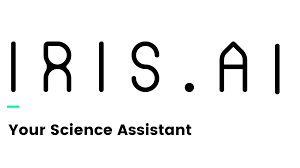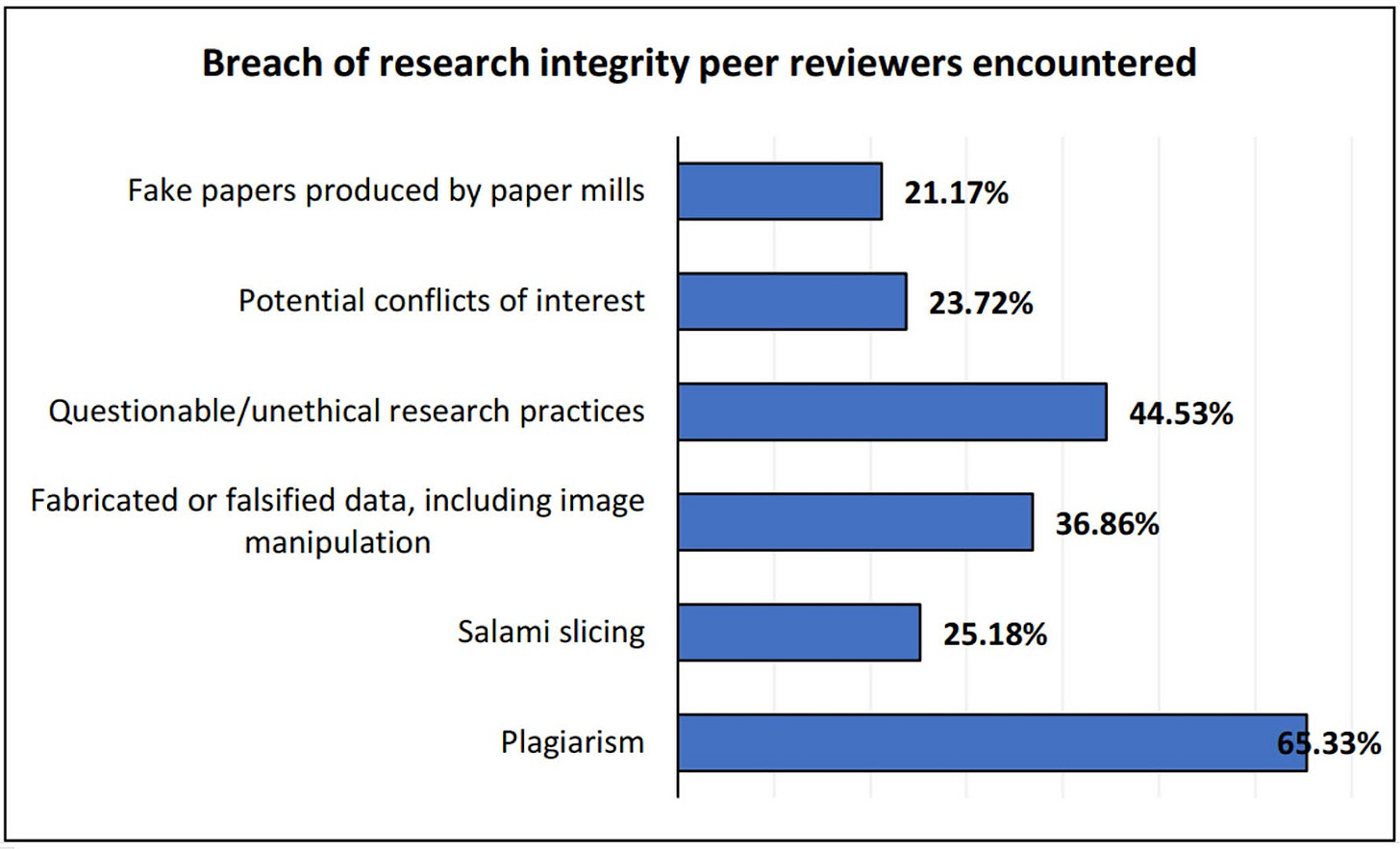Augmenting Scholarly Publishing: Intelligent Emerging Tools & Trends
Generative AI Generated Scientific Content: The Good, The Bad, & The Ugly!
Welcome, Scholarly Publishing peers,
What’s going on?
The world of scholarly publishing was enthralled this past week by a published research paper that included wildly inaccurate illustrations which were created using Generative AI 🤖 The paper was quickly retracted by Frontiers but it earned an impressive (envious) altmetric score 💯 Unfortunately, not before a deep blow to research integrity & Frontiers 😖 which made the leading story in our opening newsletter this year for a different reason.
Digging Up the Past –
AI is bound to enrich our knowledge by miraculously revealing burned & buried ancient information in the scrolls📜 from the great civilizations of the past. However, ironically, we continue to grapple with preserving the scholarly content in the age of digital publications 📚 Results from a survey recommend use of AI for an efficient peer review process to manage volumes😑
When Enough’s Enough –
Papermills Anyone?
There are growing pressures for journals to publish more to prevail & not perish, though papermill content is not what anyone desires ⛔ yet there is a shift toward increased paper mill content 📈
Manipulation, What Manipulation?
Of course, there is a renewed interest in identifying fake research papers 🆔 and curtail fake manipulation of impact factors🚫
The Fall-Out!
However, it is a constant uphill battle 📈 that sometimes results in false accusations affecting careers 📉
Retribution –
In a surprising new turn of events, China begins to conduct first nationwide review of retractions and research misconduct 🔎 In fact, the Chinese Academy of Sciences has already independently published the 2024 edition of the Early Warning Journal List (EWL) ⚠️
🔎Avi’s AI Tool Spotlight:
Relieving Concerns Over Gen AI–Generated Content –
Iris.ai is an award-winning AI engine for scientific text understanding without compromising factual correctness. Iris.ai Researcher Workspace, a suite of AI-assisted research tools, is designed to help R&D professionals accelerate their entire scientific knowledge workflows: from exploring the right content (live & local datasets), smart filtering, and summarizing results to extracting data from papers or chatting with your datasets.
Quick Summaries
Scientific Journal Publishes AI-Generated Rat with Gigantic Penis In Worrying Incident: A science journal retracted a paper featuring nonsensical AI-generated images, notably including a wildly incorrect diagram of a rat penis & several illustrations with mislabels. The paper credited Midjourney for the images. This incident underscores concerns about generative AI's impact on academic integrity & highlights the need for improved editorial standards. It also strengthens the need & resolve to put human oversight front and center!
AI Unravels Ancient Roman Scroll Charred By Volcano: AI helps decipher the text of a 2,000-year-old scroll burned at Pompeii: Student researchers joined the “Vesuvius Challenge” to reveal hidden philosophical work that was buried and burned in papyrus, by training their machine-learning algorithms on scans of these artifacts.
Martin Eve – Crossref DOIs, persistent discovery, and the digital preservation of 7.5 million items: Ever wondered who preserves scholarly content in the age of digital publications 🤯 Despite some preservation efforts, millions of articles remain at risk. Direct outreach and a self-healing DOI project are proposed solutions.
Unveiling Perspectives on Peer Review and Research Integrity: Survey Insights The continued growth in publication volumes is putting a heavy strain on peer reviewers and endangering research integrity. The authors suggest that AI tools can support peer reviewers and enhance their work but AI must not replace human judgment.
Full text paper https://onlinelibrary.wiley.com/doi/abs/10.1002/leap.1594
Source: Calamur, H. and Ghosh, R. (2024), Adapting peer review for the future: Digital disruptions and trust in peer review. Learned Publishing, 37: 49-54. https://doi.org/10.1002/leap.1594
Ambiguous editor-publisher relationships are a perfect target for paper mills: Recent articles reveal paper mills bribing editors, extending to regular editors, blurring the editor-publisher relationship and fostering misconduct. The lack of oversight allows some editors to exploit their positions.
‘The situation has become appalling’: fake scientific papers push research credibility to crisis point Thousands of fake papers endanger medical research, fueled by paper mills. Rampant fraud threatens scientific integrity, with journals and peer reviewers failing to stem the tide. Worrisome implications for drug development and academic advancement.
Fake research papers flagged by analysing authorship trends: Identifying Fabricated Networks within Authorship-for-Sale Enterprises According to an arXiv preprint a new tool by Digital Science spots fake journal articles from paper mills. Using innovative methods, it detects suspicious author combinations.
Citation cartels help some mathematicians—and their universities—climb the rankings An analysis reveals mathematicians from China, Saudi Arabia, and elsewhere are inflating citation counts by referencing their own low-quality papers, boosting their universities' rankings. Clarivate has excluded math from its list of highly cited papers due to concerns about manipulation. Experts call for better evaluation systems beyond citation metrics.
Thank you for your warm work… earnestly An interesting piece by Adam Day. Some academic correspondence relies on templates, raising concerns about research integrity. Yet, template use is widespread beyond paper mills, complicating fraud detection. Editors must remain vigilant, but solely relying on templates for scrutiny may lead to false alarms.
I’m not a chatbot – I promise! E. M. Wolkovich writes “But I worry about a world in which a reviewer can casually level an accusation of fraud, and the editors and journal editor simply shuffle along the review and invite a resubmission. It suggests not only that reviewers and editors have no faith in the scientific integrity of the submitting authors, but also that ethics are negotiable. Such a world seems easy for ChatGPT to corrupt without even trying — unless we raise our standards.”
China conducts first nationwide review of retractions and research misconduct: With growing concerns over increasing number of retractions from Chinense co-authors (>17,000 since 2021!) & the recent fall-out from the Hindawi fiasco, a nationwide self-audit is underway to determine the nature & extent of retractions in the last 3 years in a bid to reclaim the tarnished academic reputation. We plan to follow this story to report back on the resulting “serious measures” to discipline & reprimand the culprits!
CAS 2024 International Journal Early Warning List – Initial Observations Nicko Goncharoff shares his initial thoughts on the CAS 2024 EWL. It lists 24 journals, emphasizing academic misconduct and publishing practices as criteria, with American Scientific and MDPI most affected. CAS aligns with the "Zhuhai Memorandum on Fostering a New Ecosystem for Research Integrity."
Sustainability reads
How much electricity does AI consume? Future projections suggest AI's energy demand could rival that of entire countries by 2027, raising concerns about sustainability and efficiency. Efforts to mitigate this impact include proposed energy star ratings for AI models and questioning the necessity of AI in certain applications.
Conversational AI and equity through assessing GPT-3’s communication with diverse social groups on contentious topics Interacting with an AI chatbot about climate change and the Black Lives Matter movement shifted views, especially for skeptics of climate consensus and those with negative opinions of BLM.
🗓️ Upcoming AI Events:
➡️ 2024 SSP Innovation Showcase; FREE webinar by Society for Scholarly Publishing on Thu, Feb 22
➡️ The Heart of the Matter: Copyright, AI Training & LLMs; FREE Town Hall event by Copyright Clearance Center (CCC) on Thu, Feb 29
➡️ AI and Beyond: A vision for the future of publishing technology; FREE webinar for ALPSP members ONLY on March 26
Feedback Corner
If you enjoyed reading the newsletter, sign up or share with someone who may be interested!
Thanks for reading! Your feedback is important for us to cater to your scholarly needs:
Reader’s Sounding Board
Please share your thoughts, suggestions, and comments: augmentscholpub@gmail.com for us to share with our audience.
➡️ What checks & balances ⚖️ do you have in place for approaching AI-generated content?
➡️ How are you currently dealing with paper mill content 🗑️?
Until next newsletter,








